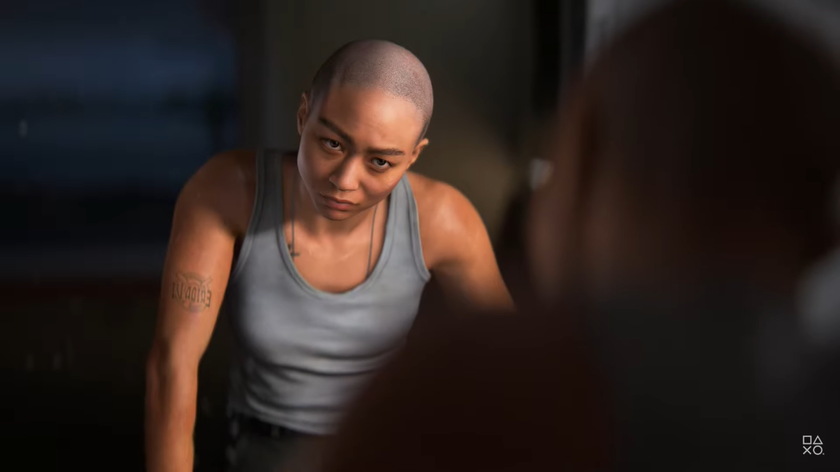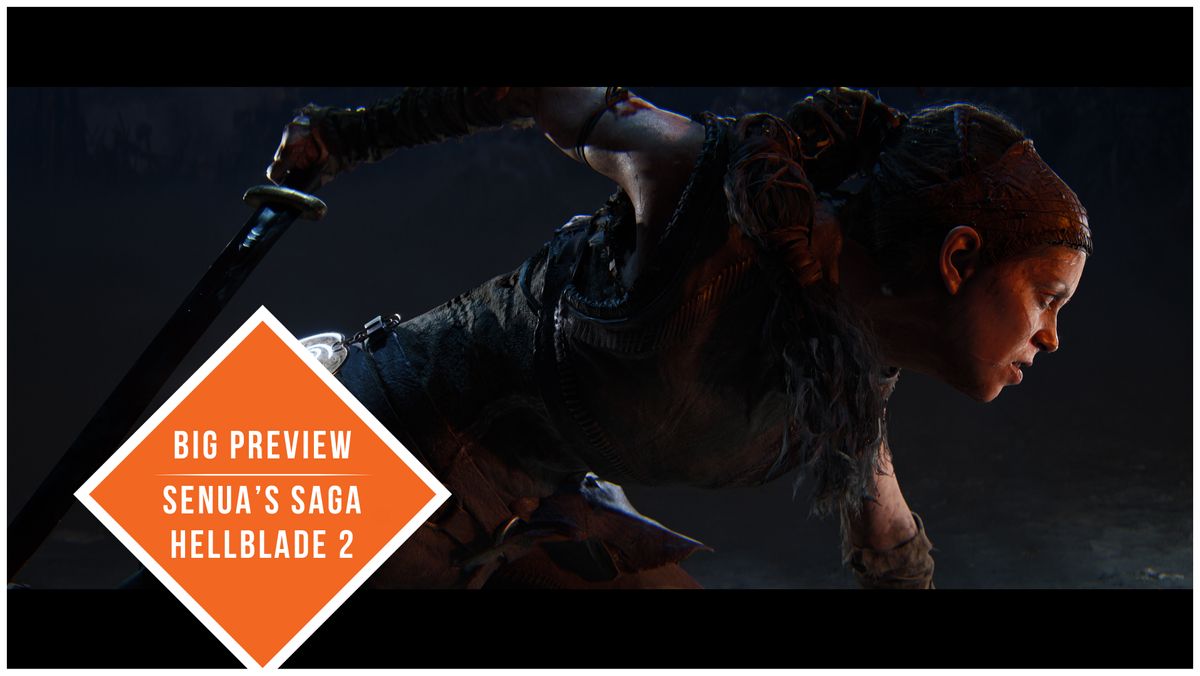
Disembodied voices shriek at the sight of it: a flayed corpse suspended between rough wooden branches. As Senua steps closer, the voices shrink to a whisper. She's seen this before, they taunt, and the scars it seared onto her soul are permanent. Inching closer still, a wreath of dismembered body parts curls out of the ether and slowly it begins to swirl – a dazzling, disgusting fracture in reality. Sigils dispel the nightmare, hidden across a settlement stained maroon by gore and viscera – the rancid decay palpable through thick, drifting pockets of mist and fog. This pattern of violence repeated the next village over. There, a stream of water cascades gently over jagged rocks; a brief respite in a land of loss. A rickety bridge creaks towards a canyon illuminated by vibrant, flickering embers. Towards a rite of blood and fire. Hell awaits.
Release date: May 21, 2024
Platform(s): PC, Xbox Series X
Developer: Ninja Theory
Publisher: Xbox Game Studios
Ninja Theory studio head Dom Matthews describes Senua's Saga: Hellblade 2 as "an experience of cinematic immersion." It would be more accurate to call it an astounding visual and auditory assault on the senses. The sort of all-encompassing adventure that can set an unassailable benchmark for upcoming Xbox Series X games designed and delivered by the Xbox Game Studios network. The intent behind this surprising sequel, Matthews continues, is to "make it as easy as possible for players to suspend their disbelief and sink into Senua's world, achieved by translating ground-truth references to the real world into our game in the purest way possible."
How this manifests throughout Senua's Saga: Hellblade 2 is stark. You see it in the near-photorealistic environments and the disorienting visual distortions that haunt them. Through sickeningly physical combat encounters, brought to life through intensive motion-capture sessions undertaken at Ninja Theory's new Cambridge campus. And in the grounded approach to exploring psychosis, realized in-game by scintillating performances mired in miniature. Matthews says Ninja Theory has always been driven to "craft life-changing art with game-changing tech." But in Hellblade 2, the DmC: Devil May Cry and Enslaved: Odyssey developer is closer than ever before to achieving that ambition.
This is the 12DOVE Big Preview of Senua's Saga: Hellblade 2. Below you'll find hands-on impressions of the new Xbox exclusive, and new insight from the team at Ninja Theory. We'll have more in the days ahead too, as we dive into the combat, story, and more.
Hell awaits
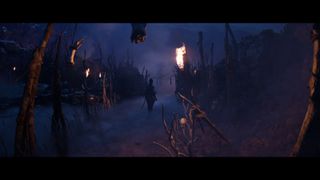
It's been seven years since Hellblade: Senua's Sacrifice took us on a hallucinatory descent into the depths of Helheim. The journey to reclaim a treasured soul from the goddess Hela made possible by Senua remodeling her reality around a concept of connective darkness. From that abyss, Senua reaches a point where she is more accepting of her psychosis, understanding that the voices in her head – the Furies – are not a curse, but a part of who she is. "We're not walking back from that," says principal production director Lara Derham. "That's where we start from in Hellblade 2."
This subtle shift in character created a new creative challenge for Ninja Theory – even as it continues collaborating with external experts to ensure its portrayal of psychosis is both reflective and respectful. Melina Juergens has spent an immeasurable amount of time grappling with it too. "I didn't want Senua to come across like she has overcome all of her challenges, that she's now cured," says the former Ninja Theory video editor turned star performer. "People who experience psychosis might never recover from it. But I wanted Senua to come across as being more in control of those visions and voices. That's what I tried to bring across in my performance."
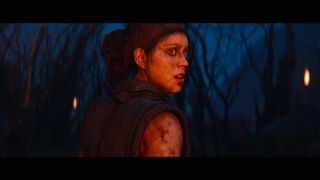
A powerful and propellent performance guides Senua on a journey to the heart of Iceland. Senua's Saga: Hellblade 2 picks up shortly after the events of the original game, with the Pict warrior sacrificing herself to Norsemen raiders who return to the lands where her partner, Dillon, was once sacrificed to appease old gods. "Senua made a promise that nobody would suffer in the same way," says Derham, "so she travels to where they came from to stop it at the source. That's the driving force of this mission; she has a sense that this is something she is supposed to do."
Senua may believe that she has been chosen for this task by a higher power, but she isn't necessarily prepared for what (and who) she'll encounter on the mainland. "She is now sharing the world with other people," says Matthews. This wasn't necessarily true of the first game, which utilized FMV apparitions to circumvent budgetary restrictions, giving Ninja Theory "the opportunity and the responsibility to explore what experiences of psychosis can be like when Senua comes into contact with other people. How her unique model of the world collides (or dovetails) with other people's perspectives of both her and of the world around them."
Sign up to the 12DOVE Newsletter
Weekly digests, tales from the communities you love, and more
In one encounter, I stand with Senua as she grapples with a whirlwind of noise. Internal voices crawl atop one another to offer contentious narration on her predicament, all while an external voice attempts to break through the barrier: an increasingly irate, and intimately-detailed slaver who senses her preoccupation with unseen forces. It's a disarming, deafening sequence that's propelled by Ninja Theory's smart use of binaural audio to lock you into Senua's reality. "We're trying to create a sense of depth and space with our sound," says audio director David García-Diaz. "This is the closest we can get to replicating the sensation of having other voices in your head."

"This is the closest we can get to replicating the sensation of having other voices in your head."
David García-Diaz, Ninja Theory
García-Diaz continues: "When you put on your headphones it creates an intimate space, a connection with Senua and the Furies. If we do our job well, then you'll be right there on that journey with Senua. It's a very fine line, but it all comes down to the magic that sparks from the performances." During my time visiting Ninja Theory, I was able to sit in on one of these performances, as actors Abbi Greenland and Helen Goalen recorded dialogue pickups in the closing weeks of Hellblade 2's development.
With headphones on, I watch as the two Furies swarm around a composite rubber head like bees protecting a hive, whispering and shrieking scripted, unassigned dialogue at a rapid pace between two microphones buried within its ears. It's a surprisingly organic process, given that the pair are effectively working to construct audible chaos. "Sometimes we might fall into a pattern of who says what live," says Goalen, "and sometimes we might shake it up to make sure it's different." The resulting effect is a disorientating, sensory overload – and undoubtedly one of Hellblade 2's greatest strengths.
Grappling with reality










Developer Ninja Theory was acquired by Microsoft Gaming six years ago for an estimated $117 million, and Senua's Saga: Hellblade 2 is the first project from the studio to be developed entirely within the Xbox ecosystem. With Senua's Sacrifice, the studio championed an 'independent AAA' approach to game creation – which Matthews defines as the marriage of "AAA production values with independent creative risk-taking." While Ninja Theory has clearly benefited from the increased support and resources that are made available to first-party studios – Hellblade 2 is operating with a degree of responsiveness, fluidity, and fidelity in its play that the studio simply wasn't able to achieve in Senua's Sacrifice – I'm surprised by how grassroots its development appears.
The core team working on Hellblade 2 is around 80, a massive leap compared to the 20 or so who staffed the original game – but low by most AAA standards. It's strange to think that the transformative 3D audio that helps bring every second of Senua's Saga to life is the result of actors crawling around a mannequin head in a small soundproof room, or that the environment team – responsible for digitizing slices of Iceland with state-of-the-art photogrammetry techniques – is comprised of just eight developers, and the combat and visual effects teams are just as lean. "I still think of Ninja Theory as kind of a boutique studio," Matthews laughs.
"Hellblade 2 isn't a Hollywood blockbuster – it's a quality independent film."
Dom Matthews, Ninja Theory
"If I were to draw an analogy with film production," he continues, "to me, Hellblade 2 isn't a Hollywood blockbuster – it's a quality independent film." It's an interesting perspective, particularly as you'd expect a first-party studio would need to make allowances for the wide spectrum of potential players reaching the experience through Game Pass and beyond. But Ninja Theory is steadfast in its decision to keep the core DNA of the Hellblade series intact. The specter of permadeath has been removed between the original and its sequel but, as environmental art director Dan Attwell explains it, some elements were worth reinvesting in: "We've gone really realistic, there's no camera cuts, and there's no HUD – we've given ourselves a really hard job, but these are all choices we stand by."
"We just had to lean into the fact that we do things differently," says Mark Slater-Tunstill, VFX director, "and that we've got a fanbase because of that. What's great about Hellblade 2 is that more players are going to be exposed to it." Ninja Theory may have become a first-party Xbox studio, but that hasn't changed the way it likes to make games. The resources gained through the acquisition are being put to improving key areas of development, in ways that are both identifiable once you get your hands on a controller and so subtle that they are difficult to grasp in a tangible sense.
A world reborn
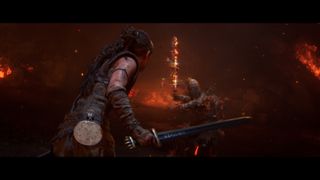
Difficult to grasp, but not imperceptible. There's this quality to the production of Senua's Saga: Hellblade 2 which is undeniable. The digital double Ninja Theory created of Melina Juergens is impressive, the result of extensive anatomy and facial scans, and given further life by the studio's decision to commission physical, period-accurate costumes for Senua and the principal cast. "Making this stuff in real life takes more effort," says Dan Crossland, character art director, "but it hopefully makes it more real for the player." The studio has been successful on that front, although that has caused Juergens some discomfort over the years: "I finally got to see myself as Senua, and it made me more connected to the character… although it was a real pain to put that costume, hair, and makeup on, it took like eight hours," she laughs.
All of that work is complemented by the evocative world design, brought to life through the adoption of Unreal Engine 5 and painstaking location scanning and photogrammetry techniques. The environment team has a bounty of stories about this process, from crashing so many drones into the ocean while trying to map the geography that it had to requisition the last craft on the island from a shop that sells DJ equipment, to the countless hours spent taking thousands of photos of rocks. "We only had one piece of photogrammetry in Hellblade: Senua's Sacrifice, and we've used over 370 in Hellblade 2," says Attwell. "It's all contributing to this sense of immersion. Even if you've never been to Iceland, at a subconscious level, we want you to have this feeling that our world is a real, lived-in place."
But there's perhaps nothing that demonstrates Ninja Theory's aggressive commitment to advancement more than the way it has utilized a new performance capture stage purpose-built inside of the studio, and how that feeds into Senua's responsiveness in movement and fluidity through stunningly visceral combat encounters. "On Hellblade: Senua's Sacrifice, we spent two days on mo-cap," says Benoit Macon, combat director. "On Hellblade 2, we spent 75 days recording – 60 on our stage here, and then an extra 15 on external shoots." Having visited Ninja Theory's old office, I can't say that I'm surprised such little was recorded – the mo-cap studio (if you could call it that) was a repurposed boardroom with cameras taped to repurposed bed-frame poles, so poorly insulated that you could hear developers gossiping about Game of Thrones in the adjacent break room.
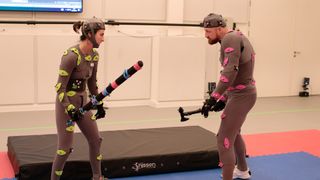
The new motion-capture studio is far more impressive. A large space allows multiple actors to interact in a scene at once, fitted with projectors that can cast environments onto the floor, and has high enough ceilings that stunt performers can finally swing swords without taking out light fixtures – now that is what getting acquired by Microsoft buys you. All of this, I'm told, allows Ninja Theory to fulfill a guiding principle behind Senua's Saga: what you see is what you get. Whether Senua is slowly exploring oppressively atmospheric environments or weaving her way through heavy one-on-one combat encounters, Ninja Theory has pushed to make movement natural and responsive. It contributes to this sense of realism that is pervasive throughout Hellblade 2 – blurring the separation between you, sitting on a couch controlling Senua with a controller, and the dangerous, disorienting world she inhabits.
Motion capture hasn't just been used as a reference point for animators, as was the case in the original Hellblade, but rather it's the foundation for everything that you see, input, and experience. "You will not see any animation in this game that has been keyframed," says Macon, speaking to the technique which lets developers easily manipulate animations for every action you can input into the game. "Mo-cap is completely different. However we want to stage combat in-engine, we can film that exactly on the stage and there is no retouch at all. That's what we strive for, to give a cinematic feel to our combat – creating combat in the same way that the narrative team creates its cinematics."
It's difficult to fully grasp the magnitude of this creative decision, but it's one of the reasons why every movement in Hellblade 2 feels so natural. It's also been a lot of work for Ninja Theory, as the studio has had to capture enough performance to ensure that every action has a true-to-life reaction. "If Senua gets hit, it triggers something; if she kills an enemy, it triggers something different and so on, building up these stories in every battle we have created," says Macon. And what's stunning is how seamless it all feels. Combat encounters are a whirlwind of unpredictability as Senua ducks and weaves between strikes and parries, with a physicality to battles that gives everything this air of desperation.
Pushing boundaries
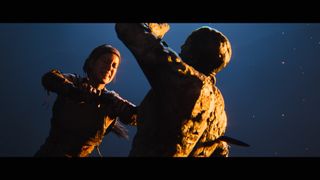
"My personal goal has always been to raise awareness around mental health subjects"
Melina Juergens, Ninja Theory
Ninja Theory is clearly operating like it has a point to prove. Maybe it does. The studio once wore its independence as a badge of honor, and everything about Senua's Saga: Hellblade 2 seems to indicate that Ninja Theory's penchant for creative risk-taking and inventive problem-solving is still alive and well – even as it operates as an arm of the Xbox machinery. From what I've played of Hellblade 2, it's clearly on track to be one of the most important exclusives that the platform has hosted this generation. Not only is it a fluid and responsive action-adventure game, boasting best-in-class visual fidelity, but it's also an experience with something meaningful to convey.
"Now that we have the support of Xbox we can reach a much larger audience," considers Juergens, as we discuss Senua's shift to mascot status. "I hope that this sparks more conversations about mental health, and gets people into the shoes of someone who suffers from it – maybe they can learn something from it, or maybe they know someone who suffers from it and they can understand them better. My personal goal has always been to raise awareness around mental health subjects, and I think this larger audience can really help with that."
Senua's Saga: Hellblade 2 is due to launch on PC, Xbox Series X, and Game Pass on May 21, 2024.

Josh West is the Editor-in-Chief of 12DOVE. He has over 15 years experience in online and print journalism, and holds a BA (Hons) in Journalism and Feature Writing. Prior to starting his current position, Josh has served as GR+'s Features Editor and Deputy Editor of games™ magazine, and has freelanced for numerous publications including 3D Artist, Edge magazine, iCreate, Metal Hammer, Play, Retro Gamer, and SFX. Additionally, he has appeared on the BBC and ITV to provide expert comment, written for Scholastic books, edited a book for Hachette, and worked as the Assistant Producer of the Future Games Show. In his spare time, Josh likes to play bass guitar and video games. Years ago, he was in a few movies and TV shows that you've definitely seen but will never be able to spot him in.
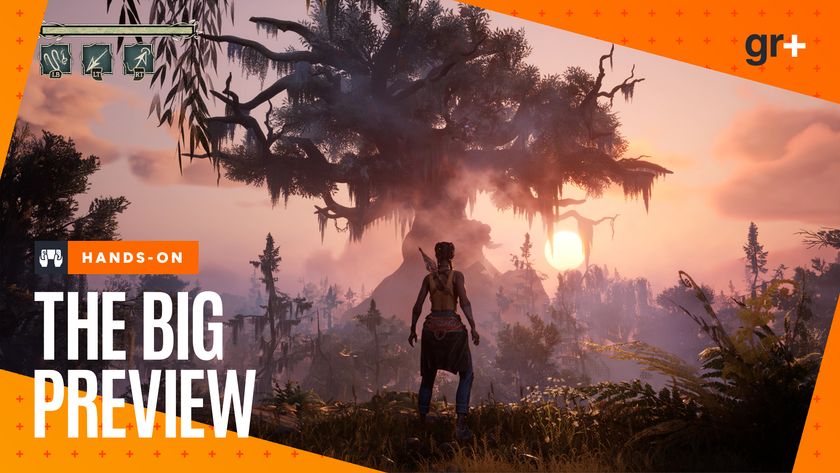
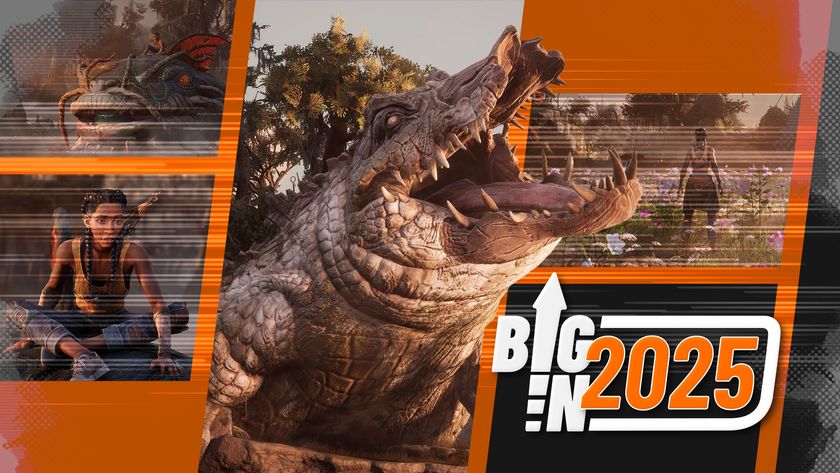
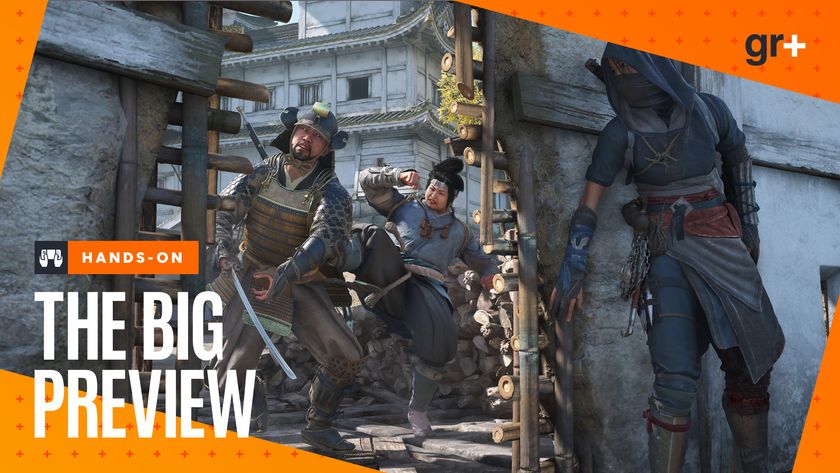
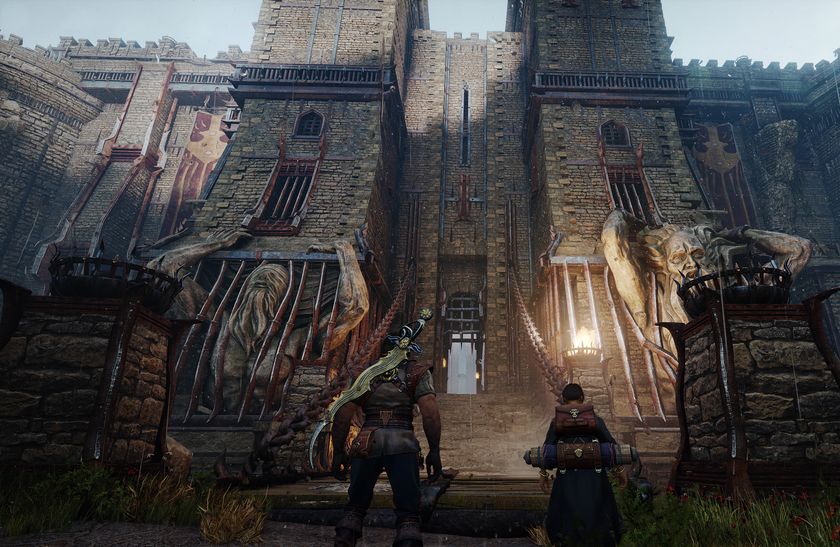
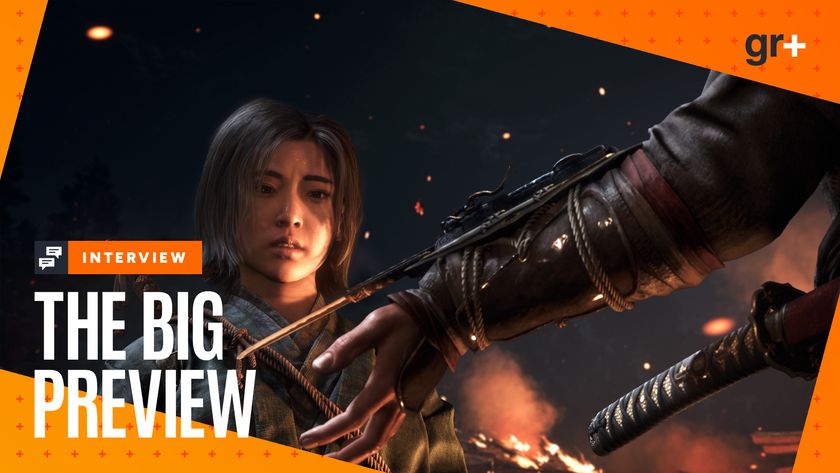
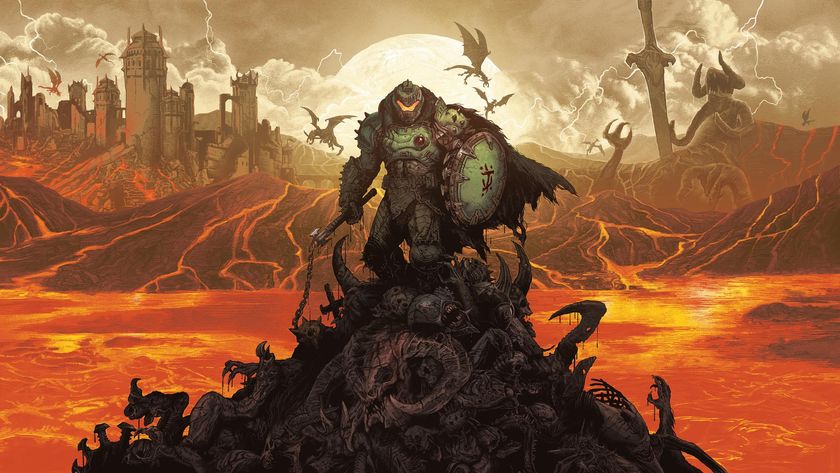
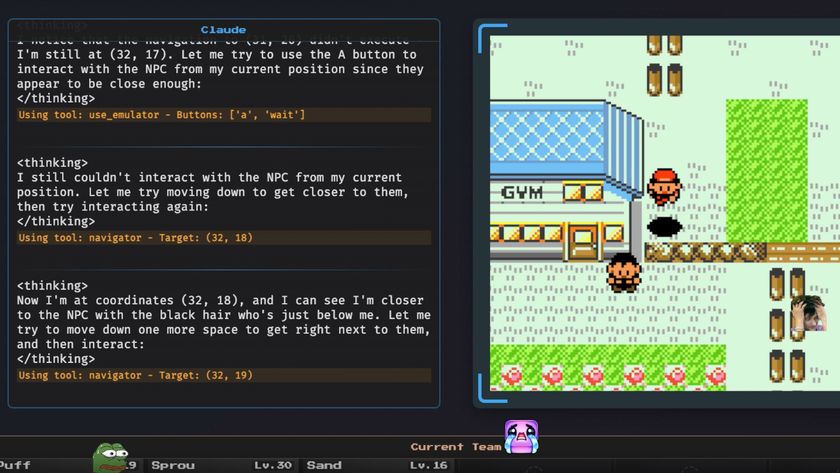
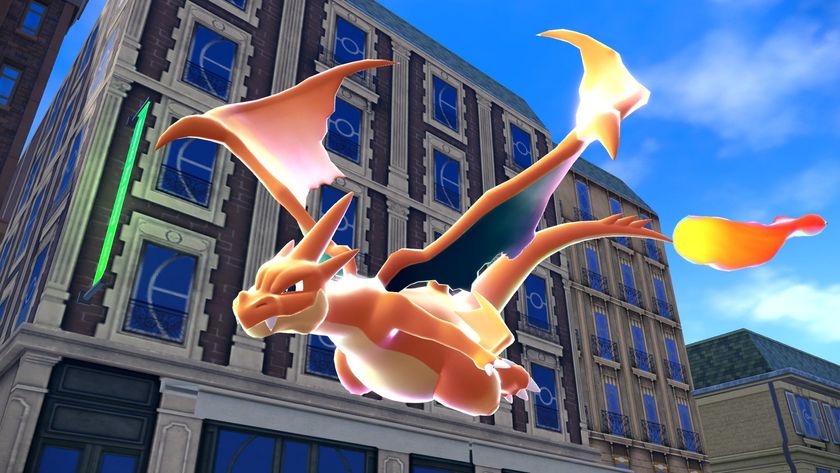
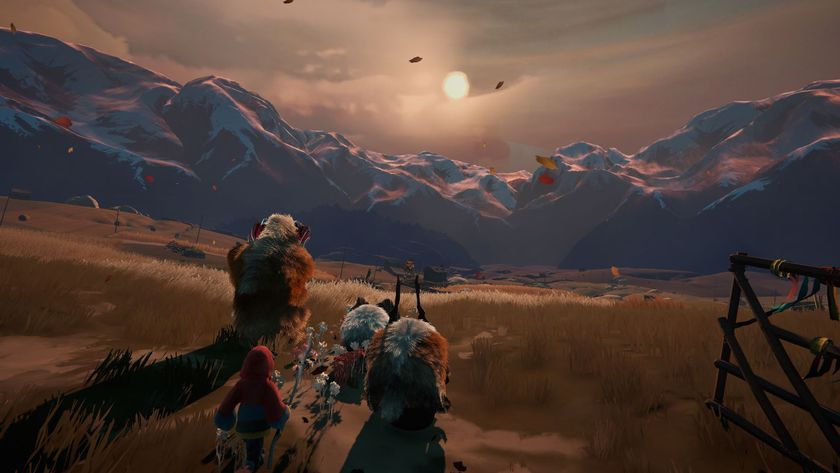
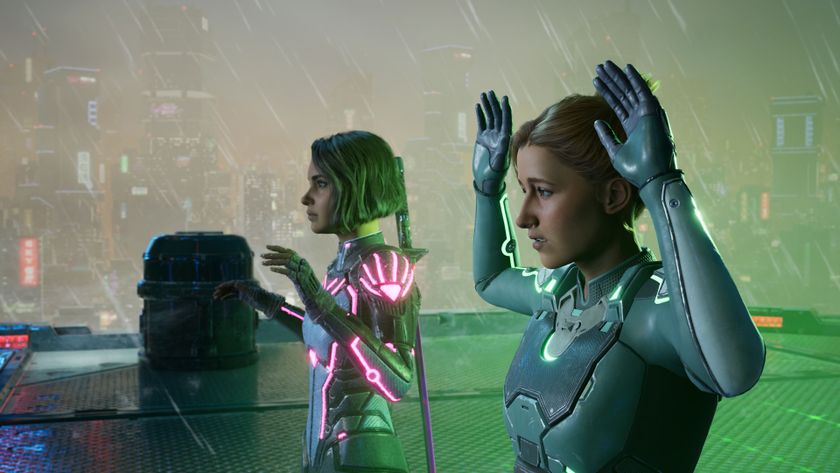

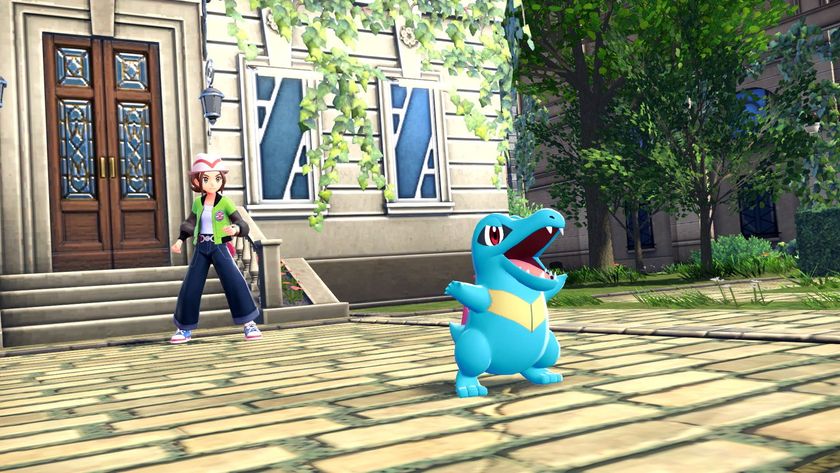







An AI's mission to 'teach' itself Pokemon Red is going as well as you think - after escaping Cerulean City after tens of hours, it went right on back

Pokemon Legends Z-A's visuals aren't "great" say former Nintendo marketing leads, but hope Switch 2 could allow Game Freak to "go back to the drawing board" and add more detail to future RPGs
